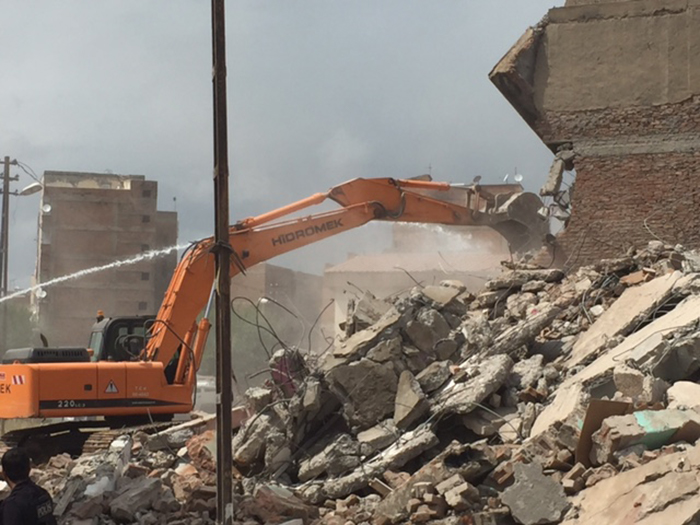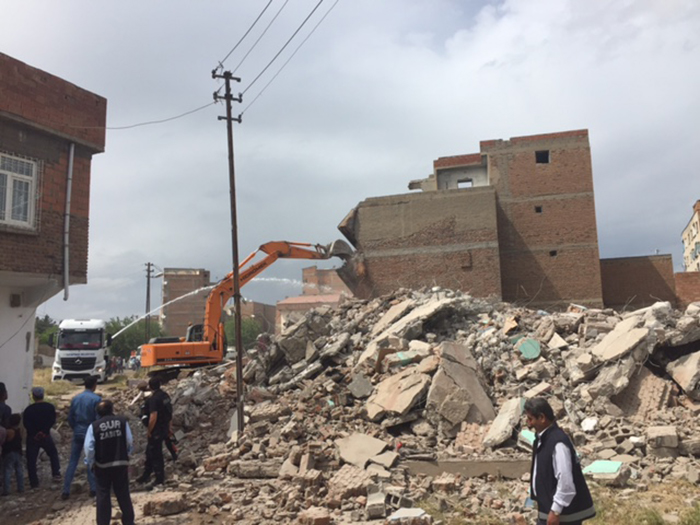
The district of Sur was the first settlement in Diyarbakır, which, according to some sources, has been inhabited for five thousand years and hosted 33 civilisations. The area’s architecture — a rich combination of churches and mosques, mansions and modest homes from different eras — is evidence of its long history and well-established community.
Since June 2016, parts of Sur have demolished as part of an “urban regeneration programme”. In the first stage, homes in the Sur neighbourhoods of Lalebey and Alipaşa were demolished. In the process, the primarily Kurdish communities were destroyed: some families moved away, their connections to their personal history severed; others stayed put, clinging to their homes and their lives in the neighbourhoods with a tenacious resistance to being erased.
The 2016 demolitions were the latest phase in a long process that began in 2009. That’s when the Mayoralties of Diyarbakır and Sur signed an agreement with Turkey’s Environment and Urban Planning Ministry and the Mass Housing Administration to replace the local housing stock with new homes in a style appropriate to the area. Beginning in 2011 with the bulldozing of homes of houses in the Alipaşa neighbourhood, the residents have been at odds with a government they see as inattentive and arbitrary.
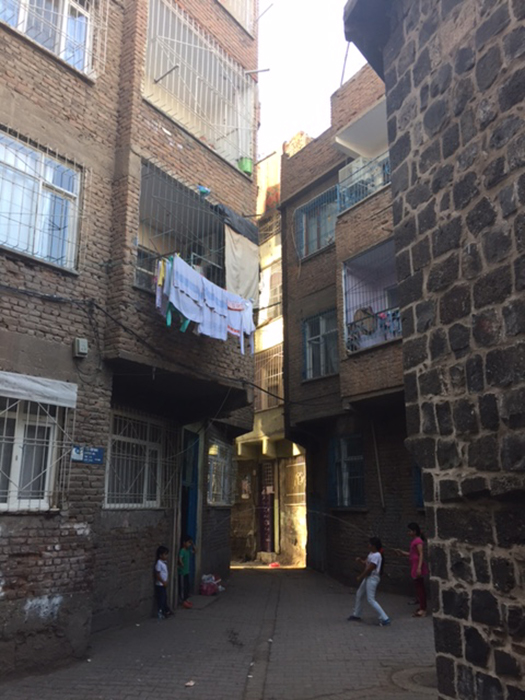
During the 1990s, there were violent clashes between Turkey’s military and armed groups aligned with the Kurdistan Workers’ Party (PKK). Thousands of villages were evacuated by state forces. Displaced people became impoverished when they settled in the city of Sur.
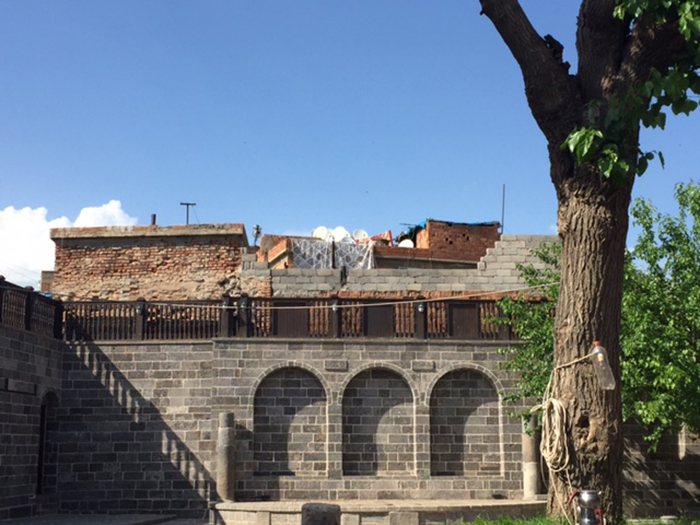
When the displaced began arriving in Sur, new housing was built that quickly overwhelmed the area’s mosque and architecture.
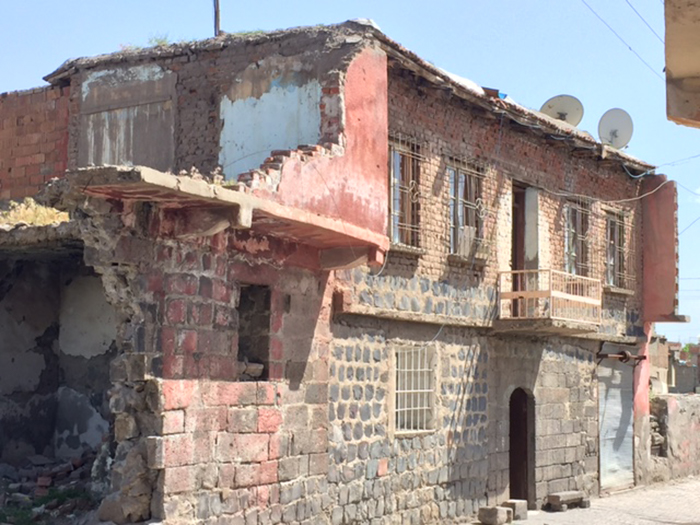
Historic buildings were destroyed in order to build housing for the displaced and the area quickly became a slum. In a short time, some of the new housing became unhealthy and unstable.
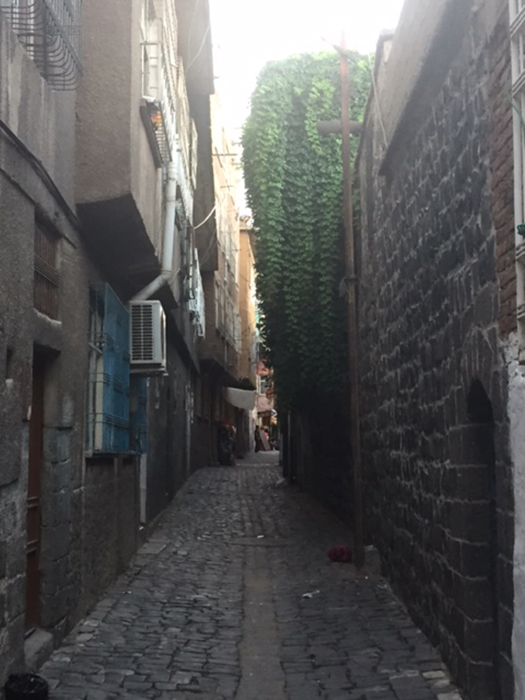
With neighbourhoods of historic buildings, narrow streets and local culture, the city of Sur would have lost these features through its urban regeneration project. Moreover, the money set aside to buy properties was not enough to allow people to start new lives elsewhere. As a result, the local government suspended the project.
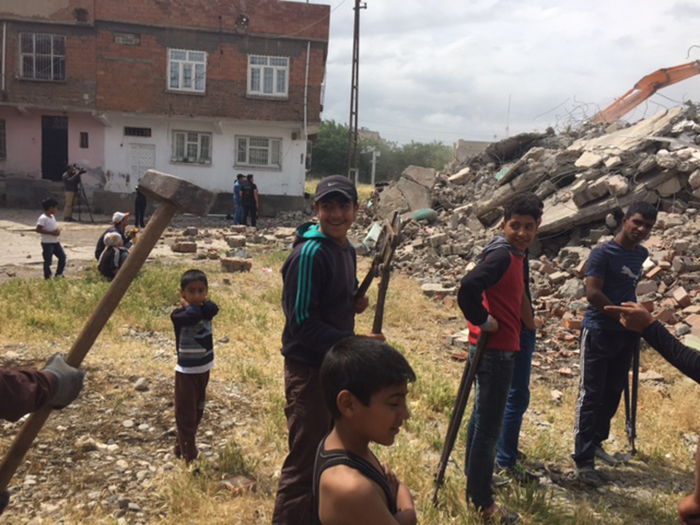
Though the demolitions had been halted because the inhabitants of the area did not want to evacuate their homes and civil society organisations had objected to the destruction of the area’s history and community, an emergency decree issued after the failed July 2016 coup restarted the urban regeneration project.
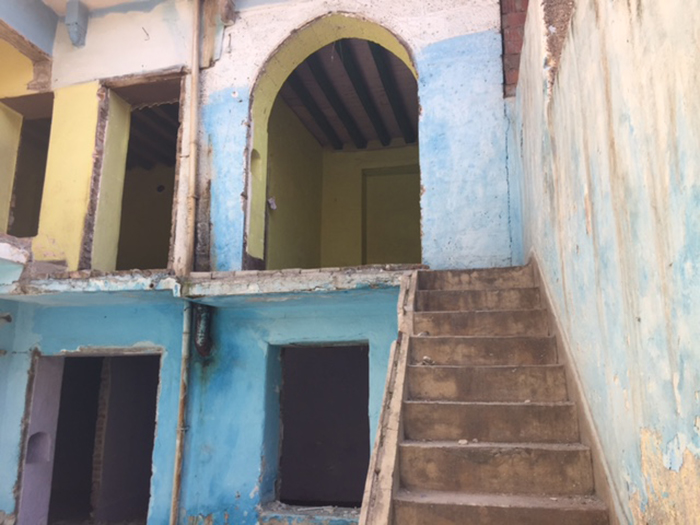
In May 2017, authorities told residents of Sur’s Lalebey and Alipaşa neighborhoods to evacuate their homes. Families that resisted were told they would be forcibly removed. In the face of the threat, some families left the area. Those that remained had their water and electricity turned off.
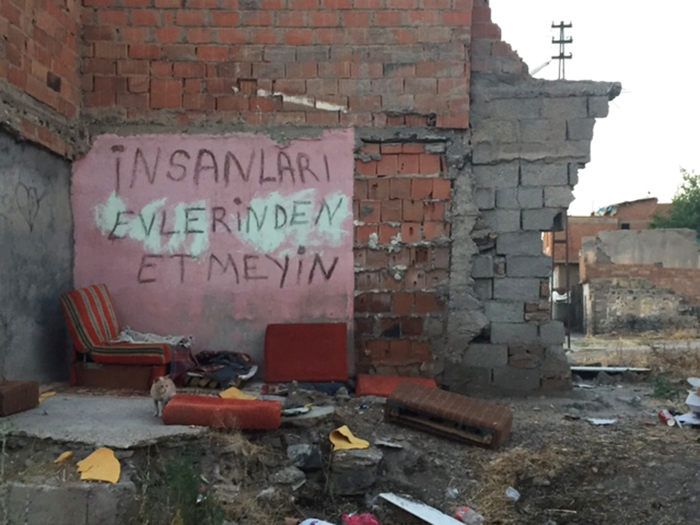
Residents of Lalebey and Alipaşa have used the walls of the neighbourhoods to make it clear they do not want to leave their homes.
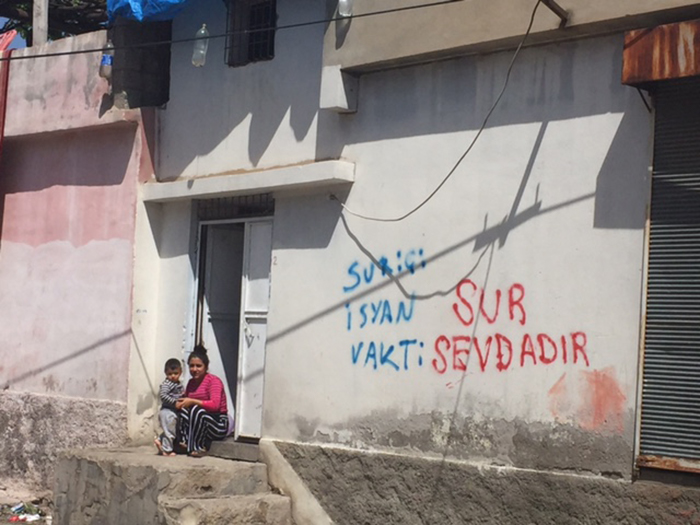
Residents of Lalebey and Alipaşa have used the walls of the neighbourhoods to make it clear they do not want to leave their homes.
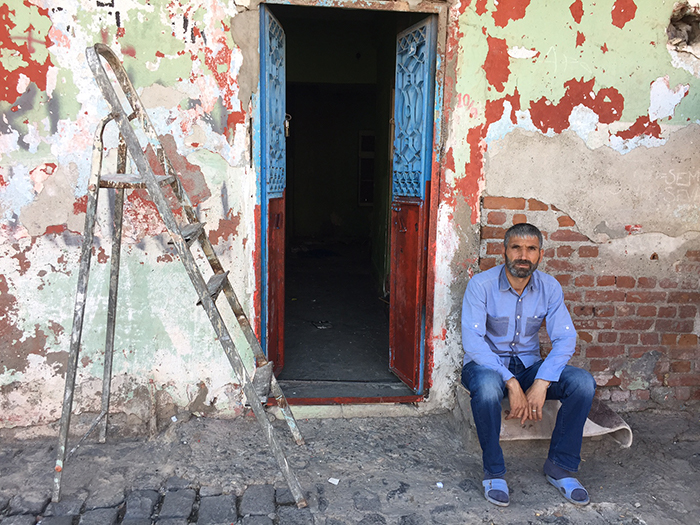
Cumali, sitting in front of his evacuated house, did not want to leave Sur. He has been moved to temporary housing on a road that has not yet been demolished. Cumali says: “I was born in Sur, I grew up, got married. Let us relax. I want to die in Sur.”
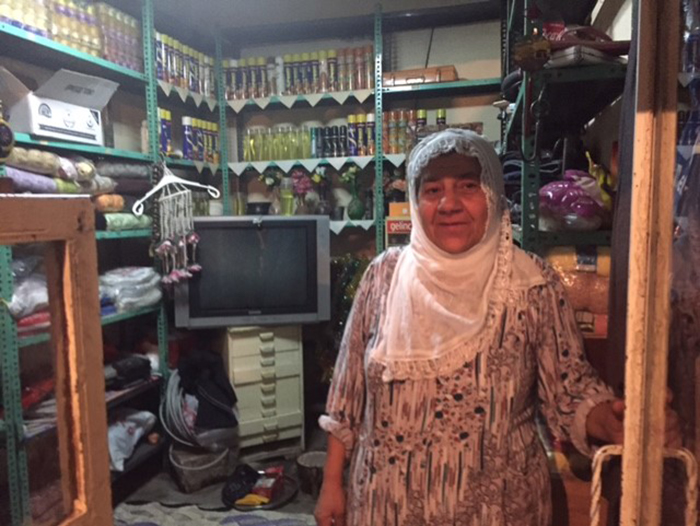
Mevlüde Ak was born and grew up in a house in Sur. She gave her house in Sur to her married, unemployed son. She lives with her husband in their small shop. After closing time, they put down beds on the floor and sleep there. Mevlüde Ak says: “They offered me 60,000 Lira for our house. This money would not be enough for us to buy a new home. We’re not leaving. If they wish, let them bring it down on top of us.”
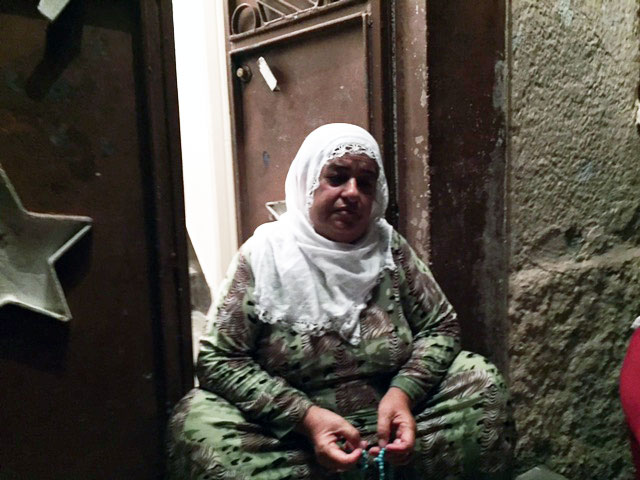
Aynur Güneş’s husband died years ago. She has no children. She lives by selling things like chocolate, gum, crisps in front of her house because it is close to a school. She explains why she does not want to leave Sur as follows: “I know nothing will happen to me here. If something happens: if I fall ill, for example, my neighbours will immediately come to help me. That’s how we grew up in Sur. If I have to live in an apartment I will die.”
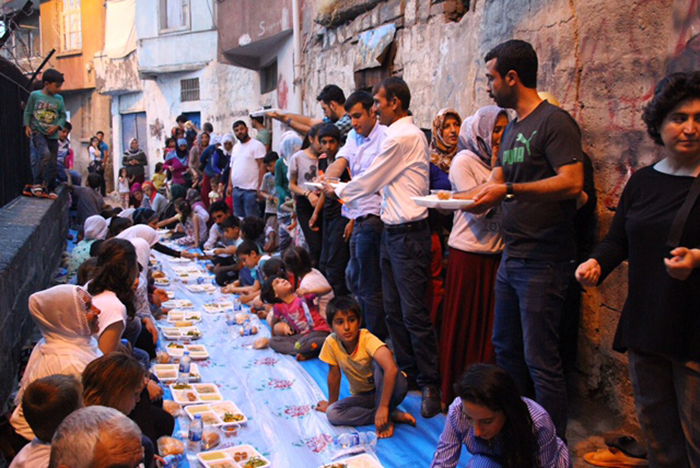
Civil society organisations, supported by artists, journalists and politicians, have banded together with Sur residents to fight the ongoing destruction in the neighbourhoods. The campaign is helping to organise petitions and community gatherings, like this one breaking the fast during Ramadan.

